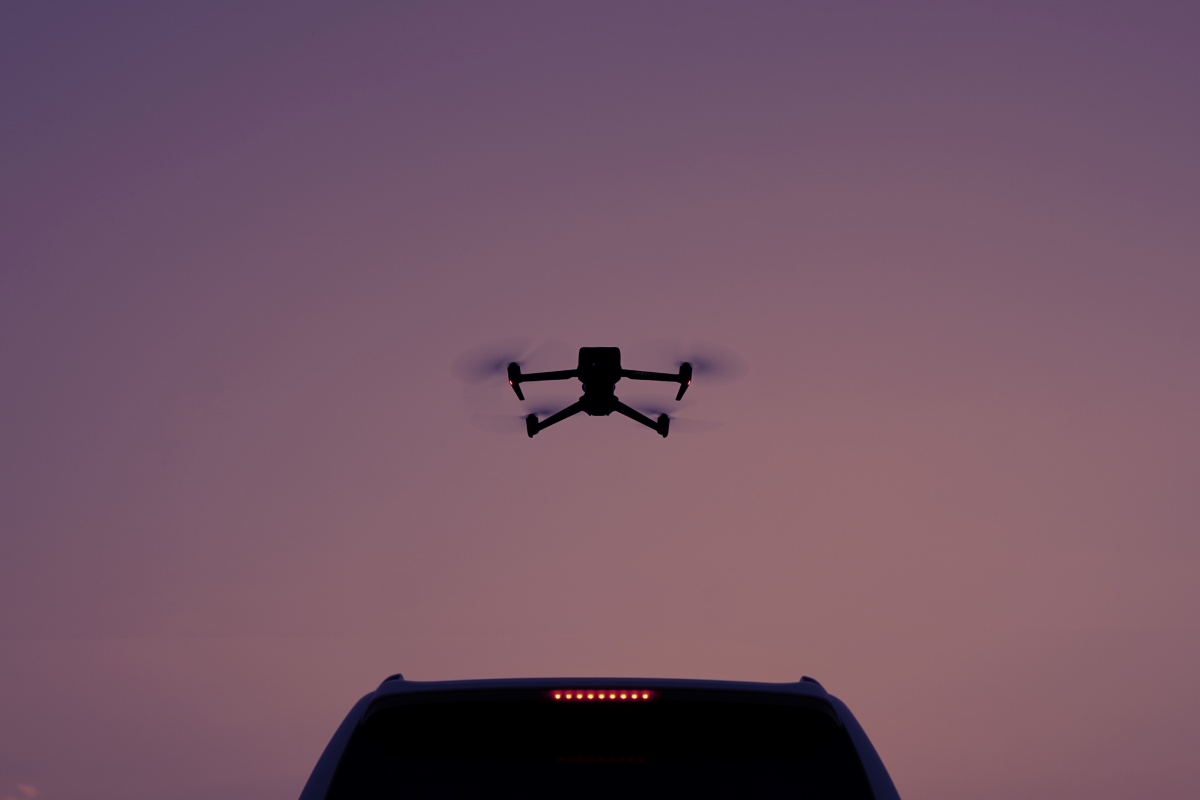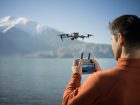
New moves unveiled by China threaten to further disrupt the already complicated business activities of global drone leader DJI in the US and elsewhere in the world, with Beijing saying it will impose new export restrictions on UAV technologies produced in the country.
The announcement by China’s Ministry of Commerce Monday said the move aims to limit access of buyers who use consumer or enterprise drones for martial purposes – notably both parties to the war in Ukraine, where DJI drones have become the favored non-military produced aerial asset. While nominally neutral, China remains a strong Russian ally, and has been criticized abroad as ambivalent in its efforts to prevent domestically produced tech from being procured and used by Moscow’s troops against Ukraine.
Read: DJI unveils its long awaited, prodigiously rumored new Air 3 drone
The development also comes amid ever-worsening relations between the US and Beijing that have generated increasing trade restrictions and outright sanctions – including multiplying bans of DJI products by US federal agencies and states.
It was unclear exactly whether the new broadening of China’s previous export limitations would come into effect today, as stated in certain reports, or September 1 as other outlets said. The main motives, by contrast, were explicit.
“The risk of some high specification and high-performance civilian unmanned aerial vehicles being converted to military use is constantly increasing,” the Ministry of Commerce said, describing the move an example of China assuming its duties as a major global economic power. “Since the crisis in Ukraine, some Chinese civilian drone companies have voluntarily suspended their operations in conflict areas… The moderate expansion of drone control by China this time is an important measure to demonstrate the responsibility of a responsible major country.”
But in addressing continued complaints – especially from European Union countries – about the continued, seemingly unabated flow of DJI and other drones to combatants in Ukraine via third-party re-exporting nations, China’s new UAV restrictions also risk considerably affecting the Shenzhen-based company’s normal business activities.
Read: Et tu, Oz? After the US, anti-DJI drone campaign builds in Australia
The additional measures reportedly cover components including certain engines, lasers, sensors, communication equipment, and anti-UAV products. As part of those limitations, advanced applications of some higher-end consumer and enterprise drones may also need to be disabled by companies like DJI for compliance. That, in turn, may cause potential customers to postpone purchases until they know exactly what capabilities their investment will buy.
The added business uncertainty that creates comes at the very time DJI faces multiplying blacklists by certain US federal agencies and states forbidding use of company drones for official work. That action – as well as the negative attention its has generated – has doubtless been partly responsible for the company’s share of the US drone market falling from over 70% just a half decade ago to what some estimates put at just about 50% today.
More worrisome still, meanwhile, is a bill already introduced in Congress that seeks to impose a de facto ban on operation of DJI craft by individual consumers and companies by prohibiting their use of ubiquitous Federal Communications Commission systems for essential communication functions.
Read: New US bill seeks far broader ban on DJI drone use
Finding itself once again stuck between renewed frictional shifts in US-China relations and other geopolitical developments, DJI says it will respect Beijing’s expanded export rules, and continue to do all it can to ensure its craft are used for the constructive, pacific purposes they’re designed for.
“We have made it absolutely clear that our products are for civilian use only… (and) absolutely deplore any use of our products to cause harm,” DJI said in a statement in response to DroneDJ’s questions – noting the company requires dealers to sign a written agreement not to sell DJI drones to buyers suspected of wanting to transform them for military or criminal purposes.
“We have never designed, developed or manufactured military-grade equipment, we have never adapted our products or pursued business opportunities for combat operations,” it continued. “Today, the Chinese government issued export control regulations applying to drones and drone-related equipment. Currently, DJI is evaluating the specific impact to our business… Once we have more specific information on which models or parts could be impacted by this new regulation, we will communicate that to our dealers and customers.”
FTC: We use income earning auto affiliate links. More.




Comments